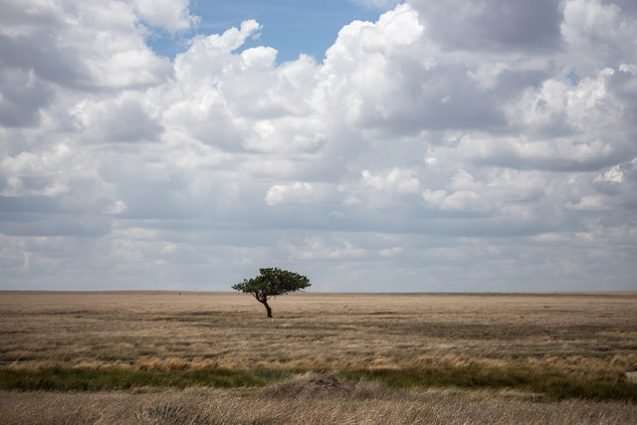Climate change caused grasslands to spread millions of years ago, and in doing so, may have led to the evolution of our distinct human traits. Credit: Alex Berger
Did climate change affect how we got here? A study from 2016 suggests that the climate and geographical locations of our ancestors held sway over how our bodies evolved and how they were built to withstand sharp weather turns. The study gives substantial evidence that many human characteristics—such as free-ranging diets, large brains, and running on two legs—emerged due to the spread of open grasslands, which was influenced by climate change.
"Reconstructing vegetation at hominin fossil sites provides us critical information about hominin palaeoenvironments and the potential role of climate in their evolution," the authors wrote in the paper. Kevin Uno, a geochemist and paleoecologist at Columbia's Lamont Doherty Earth Observatory, was the lead author on the study.
Uno and his team have been collecting fossils and other artifacts to learn more about the climate, availability of food, and access to water that our ancestors experienced millions of years ago. Uno and his team went on many field explorations to the east and west sides of Kenya's Lake Turkana to gather evidence. They drew a majority of their information from leaf waxes of plants and ancient mammal teeth.
Uno has said that these two sources are like "time capsule[s] from millions of years ago," because they provide information on rain patterns and vegetation growth from many years ago.
Their conclusion is that climate has had a huge impact on human origins and evolution. Now we can head into different climates and challenge ourselves in new ways, though it's important to examine just how we got this amazing ability to adapt.
More information: Kevin T. Uno et al. A Pleistocene palaeovegetation record from plant wax biomarkers from the Nachukui Formation, West Turkana, Kenya, Philosophical Transactions of the Royal Society B: Biological Sciences (2016). DOI: 10.1098/rstb.2015.0235
Provided by Earth Institute, Columbia University
This story is republished courtesy of Earth Institute, Columbia University http://blogs.ei.columbia.edu.





















